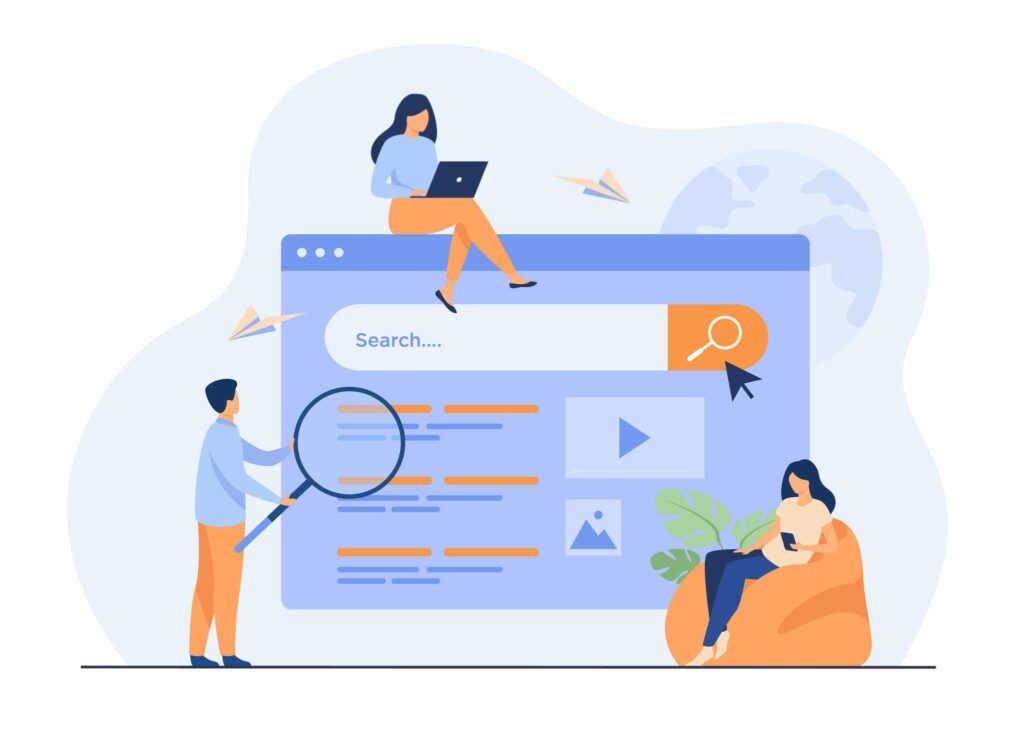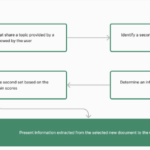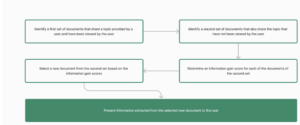As you scroll through your social feeds and news sites, it seems like everyone is dishing out tips and breaking news. You want a piece of that action for your own business. But how do you stand out from the crowd and get your content seen? This is where search engine optimization (SEO) comes in. By optimizing your website and content for search engines like Google, you can move your way up in the results to reach more readers. We’ll explore easy ways to apply SEO to your news and tips website, from keyword research to link building. You’ll learn actionable tactics to grow your audience and establish your brand as a leading source of news and advice in your niche. Let’s dive in and explore how to turn your website into a search traffic machine!
Keyword Research to Identify Relevant Topics
Finding Valuable Keywords
To rank well in search engines, you need to determine which keywords are most relevant for your news and tips business. Look at trending topics and questions in your industry to identify valuable long-tail keywords. Check tools like Google Trends, AnswerthePublic, and SEMrush to see popular related search queries.
For example, if your site provides business tips, you might target phrases like “ways to improve small business marketing” or “startup productivity hacks.” Group related keywords together to develop content clusters, which will make it easier to optimize your content.
Optimizing Your Content
Once you’ve determined valuable keywords, use them in your content, including page titles, headers, and the body. Mention keywords 3-5 times per 500 words, with the highest volume near the top. Keep your content scannable by using headers, bullet points, and short paragraphs.
Provide genuinely useful information to give readers value. Write in a friendly, conversational tone as if speaking with a knowledgeable friend. Update older content and re-optimize it to keep it ranking well.
Track Your Rankings and Traffic
Use tools like Google Search Console to see which keywords are driving traffic to your site. Check rankings reports to see how you place for target keywords. If some aren’t ranking well, you may need to optimize content or build more links.
See which content gets the most traffic and use that as a model for future posts. Regularly analyze traffic sources to see if people are finding you through search, social media, or other referrals. Make note of seasonal trends in your niche to plan content accordingly.
Optimization is an ongoing process, but by researching valuable keywords, optimizing your content, and monitoring your progress, you can improve your search rankings over time. Keep producing high quality content, and your audience will continue to grow.
Optimize Website Content for Search Engines
Getting your website content optimized for search engines is key to improving your online visibility and attracting more organic traffic. Focus on including relevant keywords in your page titles, headings, and content. ###Page Titles Your page titles are the first thing search engines and users see in search results. Include your target keywords, especially those that match the user’s search query. For example, “SEO News and Tips for Small Businesses” or “Latest Digital Marketing Strategies for 2020”.
Headings
Use relevant keywords in your main page headings (H1) and section headings (H2, H3) as well. This helps indicate to search engines what your content is about. For example, “10 Effective Link Building Strategies for News Websites” or “How to Improve Your Local Ranking for News-Related Keywords”.
Body Content
Naturally include your target keywords in the body content on your page, striking a good balance between keyword density and readability. Aim for about 1-3% keyword density. You can also use related terms like “search engine optimization” along with “SEO”. Format your content with short paragraphs, bullet points, numbered lists, images, and videos to make it skimmable and engaging for readers.
Image Optimization
Give your images file names, alt text, and captions that include keywords. This helps search engines understand what your images are about, which can then help your page rank for those terms. For example, “news-seo-strategies-infographic.jpg” or “Image showing the latest news search trends in 2020”.
Internal Linking
Link to other relevant content on your site using keyword-rich anchor text. For example, link to your “Link Building for News Websites” article with the anchor text “powerful link building strategies for news publishers”. This helps search engines discover more of your important content.
By optimizing your website content in these ways, you make it easy for search engines to understand your content and rank your pages well in search results. Readers will also appreciate content that is coherent, flows logically, answers their questions, and provides valuable information. Keep your content fresh by regularly updating old posts and publishing new resources on the latest SEO news and tips.
Implement Local SEO Strategies
To improve your visibility in local search results, focus on optimizing your presence on platforms where people in your area are searching. Build a complete and accurate Google My Business listing, which appears prominently in Google Maps and search. Include your business name, address, phone number, website, and business hours. Upload photos of your business location and staff. Encourage customers to leave reviews on your listing to build social proof.
Get Listed in Local Directories
Claim or create listings for your business in directories like Yelp, Facebook, Bing Places for Business, and Yahoo Local. These listings will increase your exposure in local search results and on maps. Provide the same information as your Google My Business listing and link back to your website. Monitor your listings regularly to respond to reviews and update information.
Generate Local Citations
Local citations refer to mentions of your business name, address, and phone number on other websites. The more high-quality local citations you have, the more authoritative your business appears to search engines for local queries. Build citations by submitting your business to local chamber of commerce, networking organizations, and community websites in your area. You can also reach out to local publications to get featured or mentioned in relevant articles and news stories.
Encourage Customer Reviews
Ask your happy customers to leave reviews on platforms where they’re likely to search for local businesses like Yelp, Facebook, and Google. Reviews build trust and social proof, and they’re an important ranking signal for local search. Follow up with an email or quick call asking customers to leave an honest review about their experience. Be sure to politely respond to any negative reviews addressing the customer’s concerns.
By focusing your SEO efforts on the places your local customers search, you can establish your business as a reputable source for news and tips in your community. These local optimization strategies, combined with traditional SEO best practices, will drive more targeted traffic to your site from local searchers.
Benefits of SEO for Small Business
Increased Visibility
As a small business, improving your search visibility is key to reaching more potential customers. SEO helps get your website ranked higher in search engines like Google, so people can easily find your business when searching for related keywords. The higher your rankings, the more exposure your site gets, and the more traffic you’ll drive.
More Qualified Leads
Ranking for targeted keywords means the people visiting your site are already interested in your products or services. SEO helps convert that interest into leads by optimizing your content to keep visitors engaged. Things like informative blog posts, compelling calls-to-action, and easy contact forms make it simple for visitors to reach out and become leads.
Improved Credibility
A well-optimized site with helpful content signals to search engines that your business is a reputable source of information. This boosts your credibility in search rankings and with customers. SEO also builds credibility through strategies like link building, social shares, and online reviews. The more authority and trust your site establishes, the more comfortable people will feel contacting your business.
Cost-Effective
SEO provides an affordable way for small businesses to market themselves and generate new business. Once the initial optimization is complete, SEO requires minimal ongoing costs. You can do much of the work yourself or hire an SEO consultant for a few hours a month. Either way, it’s a very budget-friendly strategy compared to alternatives like pay-per-click ads or print marketing.
SEO may take time to implement, but the long-term benefits to your small business can be huge. Higher visibility, more leads, improved credibility, and cost-effectiveness—SEO delivers in all areas. With a well-optimized website and the right keyword strategy, you’ll be connecting with more of your ideal customers in no time.
14 SEO Tips for Small Businesses
As a small business, you likely don’t have a huge budget to spend on marketing. That’s where SEO comes in. By optimizing your website and content for search engines, you can drive more organic traffic and increase visibility. Here are 14 tips to improve your SEO and reach more potential customers.
Keyword Research
Figure out what terms your target customers are searching for so you can create content that ranks well in search engines. Use free tools like Google’s Keyword Planner to find keywords with high search volume that you can realistically rank for.
Mobile-Friendly Website
With more and more people searching on their phones, your website needs to be optimized for mobile devices. Make sure your site loads quickly, text is readable, and navigation is easy to use on both mobile and desktop.
Blog and Publish Content
Creating helpful content like blog posts, news articles, and tips establishes you as an authority in your industry. Aim for publishing new content at least once a week. Include your target keywords and optimize content for search engines.
Improve Page Speed
Quick loading websites rank higher in search engines and keep visitors engaged. Compress images, remove plugins that slow your site down, and consider upgrading to a faster web host. Page speed is especially important for mobile users.
Build High-Quality Backlinks
Earn links from authoritative sites in your industry to build your domain authority and improve your search rankings. Guest post on other blogs, get listed in industry directories, and reach out to sites that might be interested in linking to your content.
Local SEO (if applicable)
For local businesses, focus on optimizing your online presence in local search results. Make sure your Google My Business listing is complete, get listed in local directories like Yelp, and build citations that mention your business name, address, and phone number.
Social Media Integration
Integrate your website with social media platforms like Facebook, Twitter, and LinkedIn. Add social sharing buttons so visitors can easily promote your content. Post links to your new content on social media to increase traffic and backlinks.
Analytics and Monitoring
Regularly check Google Analytics to see how people are finding and interacting with your website. Look for trends in organic traffic and conversions to see what’s working. Track how new content and backlinks impact rankings and traffic to optimize your SEO strategy.
Ensure Mobile Optimization
With more and more people accessing news and tips on the go via their mobile devices, optimizing your website for mobile users is crucial. If your site isn’t mobile-friendly, you could be missing out on a huge portion of potential readers and traffic.
To optimize for mobile, first make sure your website has a responsive design. This means it will automatically adjust its layout to fit the screen size of any device. Content should resize and reorganize to be easy to read and navigate on both desktop computers as well as smartphones and tablets. Responsive design is key to providing a good user experience for mobile visitors.
Also focus on quick page load times, especially for mobile. Studies show that even minor delays in page loading can cause visitors to bounce from a site. Compress images, minify code, and remove any unnecessary widgets or plug-ins that could slow things down.
Double check that navigation and calls-to-action like contact forms or newsletter signups are still easy to use on mobile. The small screen size means menus and buttons need to be spaced properly and sized appropriately for fingers. It should only take one or two taps to get where visitors want to go.
Finally, consider developing a separate mobile site or app to provide an optimized experience for readers on the go. A mobile-only option allows you to tailor content, design, and features specifically for small-screen devices. However, a responsive website is still recommended as a baseline to reach the widest possible audience.
Optimizing for mobile is well worth the investment. When you make it quick and easy for visitors to access your news and tips on any device, you’ll reap the rewards through increased traffic, readership, and followers.
Build High-Quality Backlinks
Building high-quality backlinks to your website is one of the most important SEO strategies for any business, especially in the news and media industry. Backlinks are links from other websites that point back to your site. The more authoritative and relevant the sites that link to you, the bigger boost it gives your search engine rankings.
As a news and tips business, focus your link building efforts on partnerships with other media organizations, journalists, industry experts, and influencers. See if you can secure guest blogging spots on their sites, or ask them for backlinks in their articles or resource pages in exchange for promoting their content to your audience. You might also create resources and studies related to trends in your industry that other sites may want to link to and cite as a reference.
Commenting on industry forums and blogs
Another way to build quality backlinks is by commenting on forums and blogs in your niche. Search for active sites that allow comments and provide value to their readers. Post thoughtful, insightful comments that include a link back to your relevant content. The site owners and moderators may end up approving your comments, resulting in dofollow backlinks to your site.
Submit articles and resources to industry publications
Submitting guest posts, expert articles or studies you’ve conducted to established industry publications is an excellent way to build high-quality backlinks. Make sure anything you submit is very well-written and offers unique value to their readers. Promote your brand and link back to your site in the author bio. Some media organizations even allow you to include one or two links within the actual content.
Building a strong backlink profile from authoritative and trusted sites in your industry is key to solidifying your website as a go-to resource for news and tips. By implementing a consistent link building campaign focused on partnerships, blogging, comments, and contributor outreach, you can significantly boost your search rankings over time and gain more visibility and organic traffic. Focus on quality over quantity and avoid low-quality links from spammy sites. With an effective strategy, you’ll be well on your way to growth and success.
Regularly Monitor and Track Website Performance
To maximize the impact of your SEO efforts, it’s critical to regularly monitor how your website is performing. By tracking key metrics over time, you can identify areas that need improvement, see what’s working well, and make data-driven decisions to optimize your content and rankings.
Use a tool like Google Analytics to get an overview of how people are finding and interacting with your site. Check your organic traffic sources to see which keywords and topics are driving the most visitors from search engines. Notice any spikes or drops in traffic and try to determine the cause. See which content is the most popular so you can produce more of it. All of these insights will help guide your content and SEO strategy.
Monitor your keyword rankings in the search engines to make sure your target keywords are improving over time. If some aren’t ranking as well, you may need to optimize that content further or build more high-quality backlinks to it. Check your rankings for both mobile and desktop searches since they can differ. Local search rankings are also important to track if you’re targeting customers in a specific area.
Pay attention to metrics like bounce rate, time on page, and conversion rate. A high bounce rate means people aren’t engaging with your content and are quickly leaving your site. Try to improve page load speeds, make navigation easier, and produce content that provides value to readers. Monitor how long people spend on each page so you can refine or replace any content that isn’t capturing attention. And keep an eye on conversion rates to see how well your content and calls-to-action are turning visitors into customers or subscribers.
By regularly checking in on how your website and content are performing in search engines and how visitors are interacting with your site, you can gain valuable insights to help take your SEO and content marketing to the next level. Continuously optimizing based on the latest data and search engine best practices will ensure you stay ahead of the competition and keep providing the information and value your audience seeks.
SEO Service FAQs
As an SEO services provider focused on news and tips, you likely get asked a lot of common questions from clients and potential customers. Here are some of the frequent FAQs and how you can address them:
We utilize proven SEO techniques like keyword research to identify relevant terms and topics for your industry and audience. We then optimize your website content, including articles, blog posts, and news updates by including important keywords, structuring the content effectively, and providing valuable information to readers. This helps search engines understand your content and rank it higher in results.
If your news and tips business serves a specific city or region, local SEO helps improve your visibility to potential local customers. We optimize your Google My Business listing, get you listed in relevant local directories, and generate citations on other local sites. This establishes your online credibility and authority in the local market.
An increasing number of people access news and tips on their mobile devices, so mobile optimization is key. We ensure your website has fast loading times, a responsive design that adapts to mobile screens, and navigation optimized for touch. This provides the best experience for mobile users and signals to Google that your site is mobile-friendly, which can improve your mobile search rankings.
We build backlinks by reaching out to reputable websites and resources in your industry to establish links back to your site. We look for opportunities like contributing high-quality guest posts, creating infographics or tools that others will link to, getting listings in industry directories, and participating actively in your community. The key is focusing on credible, authoritative sites that will link to your content naturally because it provides value. High-quality backlinks from these sites help improve your domain authority and search rankings.
We use analytics tools like Google Analytics to monitor key metrics for your SEO efforts on an ongoing basis. This includes tracking organic traffic, keyword rankings, backlinks, and conversion rates. We can then identify areas for improvement and make adjustments to your SEO strategy to optimize performance and results. Regular monitoring and reporting provide transparency into what’s working and how we can better achieve your business goals.
Conclusion
You’ve come a long way, growing your news and tips website through effective SEO. Keep optimizing your content, improving your website’s mobile experience, and building high-quality backlinks. Stay on top of the latest search engine algorithm changes. Keep providing your audience with valuable news and tips tailored to their needs. With a commitment to ongoing optimization and serving your readers, you’ll continue growing your readership and establishing your brand as a trusted source. Now get out there and keep those SEO best practices top of mind – your loyal audience is waiting for your next helpful tips!



















